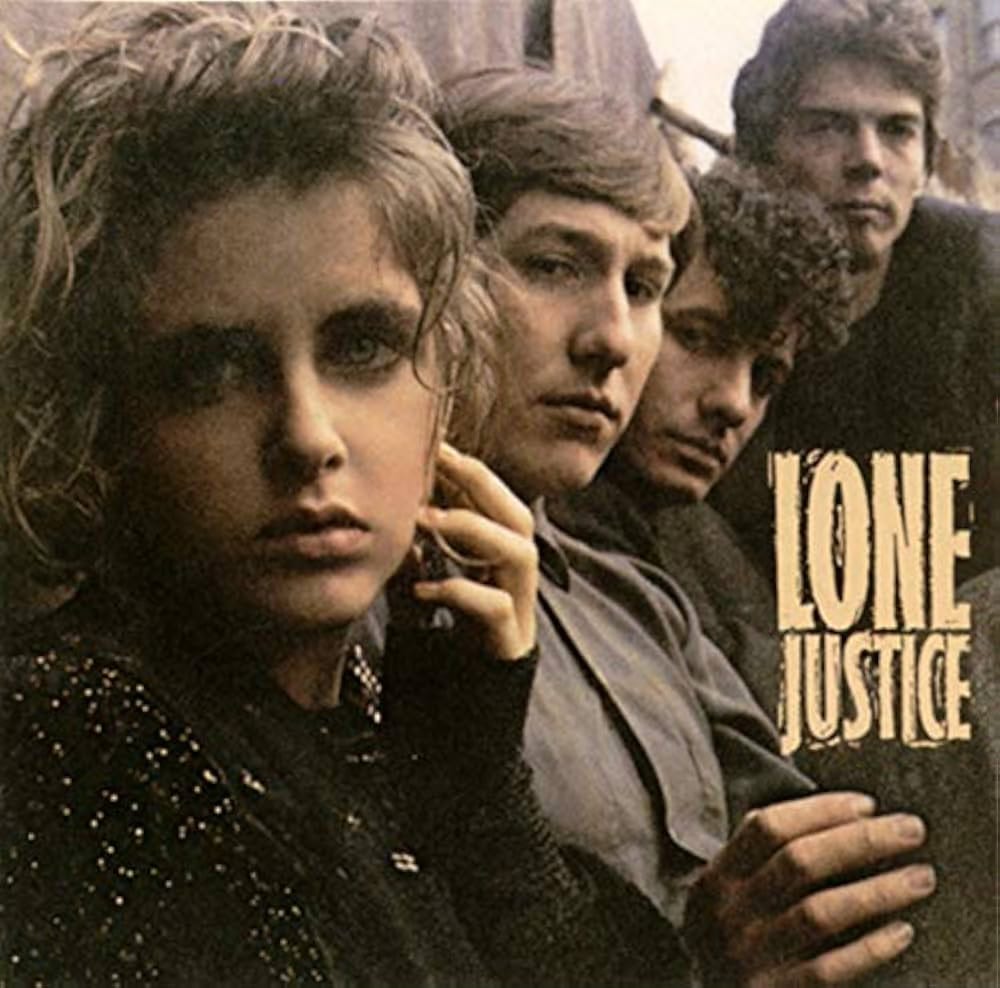The 1985 Project Part 24: Lone Justice - Lone Justice
Actually I like both Maria McKee and Marvin Etzioni better separately
The hype was just so huge. All the rock magazines were raving about Lone Justice for months before we ever heard them. Or so that’s the way I remember it. For all I know forty years later, I could be thinking of a couple lines here and there in columns mixed with stories of how much Linda Ronstadt loved them enough to help them get signed to Geffen Records.
At any rate, I was excited to hear Lone Justice’s debut album when it appeared. “Ways to Be Wicked” aside, it’s just okay. Tom Petty and Mike Campbell gifted the band this anthemic and twisted love song, and it remains the best thing ever released under the Lone Justice name. (That name, by the way, was used by different line-ups fronted by singer Maria McKee after this album appeared.) Nothing else lives up to that, though nothing on the record is a clunker, either.
So, we’ve got good songs, a great singer, and decent musicians. Why is this record not better than it is? To be sure, I enjoyed listening to it for the first time in decades, but I still felt it was confined in some way by the production. Jimmy Iovine had produced some of the cleanest, most exhilarating rock records of the past few years before he took the helm of this one – Patti Smith’s Easter; Tom Petty’s Damn the Torpedos; Graham Parker’s The Up Escalator; and Dire Straits’ Making Movies. But that kind of sound was falling from favor on the charts, and Iovine decided he needed to make this record sound as huge as Bon Jovi or something in order to get it on the radio.
The result took the band’s best asset – McKee’s vocals – and pushed them, the guitars, and the drums into loud and compressed tones that made it hard to discern what was what much of the time. As we learned later, when Maria McKee started releasing intriguingly esoteric solo albums, she was capable of great subtlety as well as enormous power. There are a couple songs here that are not overdriven, but most of the time she’s belting out at the top of her lungs.
That is most effective on the album opener, “East of Eden,” when she cries out “Should I go north?” and the men in the band answer “No.” It pulls you into the music’s world right away, then moves along at such a loud and rapid clip that the song is over before you realize what you heard. There are hooks in the song, but they’re buried by the production after that initial burst of questioning. Better is “After the Flood,” written by McKee almost certainly the week after she listened to Springsteen’s Nebraska for the first time. Iovine wouldn’t let the band calm down too much, but this song is quieter and succeeds better as a result.
Bassist Marvin Etzioni – later to release a nice record or two as Marvin the Mandolin Man – wrote “East of Eden” as well as “Working Late” and “You Are the Light.” The former was in the cow-punk tradition of such Los Angeles bands as Blood on the Saddle or Tex and the Horseheads. The latter was given the simplest production on the album, allowing McKee’s gospel-influenced vocals to carry the song’s hopeful convictions.
Other writing credits on the record include “Don’t Toss Us Away” by McKee’s older half-brother Bryan MacLean who had been in the band Love for whom he wrote a little masterpiece called “Alone Again Or.” There’s another track, “Sweet Sweet Baby (I’m Falling),” for which McKee was aided by song doctors Benmont Tench and Little Steven Van Zandt. The rest of the songs come from McKee alone.
In some ways, Lone Justice taught the emerging alt-country artists of the next few years what not to do. If you’re going to play roots oriented rock’n’country music, don’t push the sonics up to such extremes. (Of course, Jason & the Scorchers did alright that way, but I can’t think of any other examples.) This line-up of Lone Justice would be scrapped by the time of the follow-up album, Shelter, which I can’t remember a dang thing about.
I call this a 6.5 out of 10 point record.


Ryan Hedgecock told me that Jimmy Iovine was the worst thing that happened to Lone Justice, and said that he didn't know anything about country music, either. To Iovine, country was Creedence, which explains a lot about what he was trying to do here, I guess.
I think much more of the album than you do, but your points are well made, and most likely shared by at least half the band to some extent.